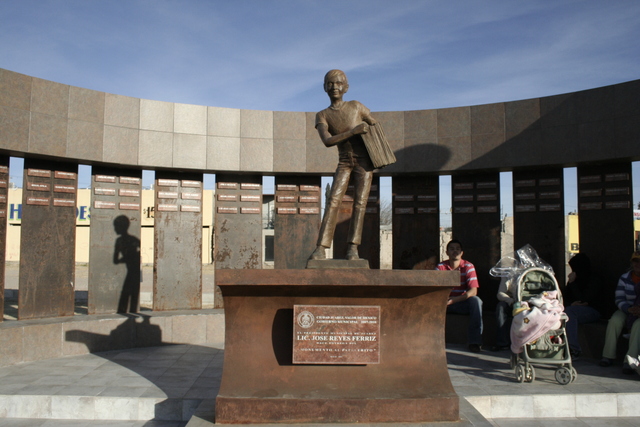Juárez: Bleeding But Still Breathing
A Few Miles From New Mexico, The Border Town Is Struggling For Normalcy Amid A Drug War, Corruption And Exodus


The newsboy monument at the Plaza of the Journalists has been the site of gruesome messages to the press in Juárez: Keep quiet on drug crimes or pay with your lives.
Maren Tarro

A mural on a building at the Plaza of the Journalists contrasts independence and drug dependence.
Maren Tarro

A woman in traditional dress sells souvenirs to tourists—but on this day, there are no tourists.
Maren Tarro

Maria surveys the neighborhood from a balcony at her family's Juárez home.

Maria and her partner Mandy








